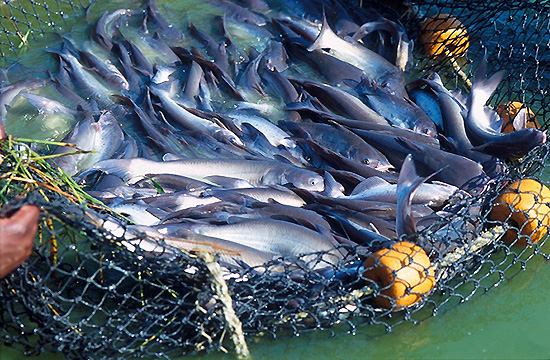
The reliance on high-density farming in aquaculture wreaks havoc, causing water pollution, disease spread, and ecosystem degradation.
Such practices deteriorate aquatic ecosystems, demanding an imperative shift towards sustainable aquaculture for environmental preservation.
Inadequate waste disposal in aquaculture unleashes excess feed, chemicals, and fish waste into water bodies, polluting and disrupting ecosystems.
Proper waste management is pivotal to shielding water quality and aquatic life from the detrimental consequences of mismanagement.


Relying on fishmeal and oil from wild-caught fish strains marine ecosystems, leading to overfishing.
Unsustainable feed practices in aquaculture exacerbate the depletion of wild fish populations, underscoring the urgency to transition to sustainable feed sourcing for marine conservation.
The extensive use of synthetic fertilizers, pesticides, and herbicides in conventional agriculture sparks chemical runoff, soil degradation, and biodiversity loss.
These practices contribute to environmental harm and adverse effects on human health, necessitating a shift towards sustainable agricultural practices.


Monoculture farming drains soil nutrients, heightens vulnerability to pests and diseases, and diminishes biodiversity.
These impacts amplify environmental degradation, emphasizing the imperative need for sustainable agricultural practices to counter the consequences of monoculture farming.

